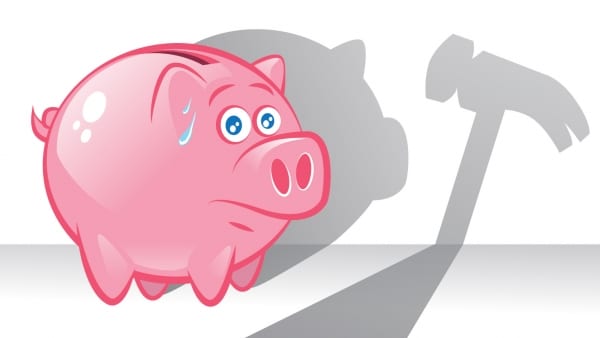Everyone should have an emergency cash fund. Having emergency cash available will give you a sense of financial security and it will stop you from running up your credit card bill whenever an unexpected cost springs up. An emergency cash fund should be set aside especially for accidents and emergency car repairs since these can seem to come out of nowhere and are never cheap. If you didn’t have any cash stashed up, you might have to opt for debt help and no one really wants to resort to that. You should start forming a bundle of extra cash immediately and build on it over time but also use it when you need to.
Saving for Emergency Cash
A short term goal for setting up emergency capital is a great way to get started. Look at saving a small sum like $300 to $500 over the coming weeks and months. Even if you can only shave off $30 to $50 a week from your normal cost it will only take a few short months to accumulate a good starter account. A reasonable goal that is attainable will make the first stage easier. After you have reached your first goal you can set higher amounts so that you have something to strive for but do not make your goal unreachable.
Shaving cost and saving up dollars can come from lots of places. If you have credit cards with a balance due then try and negotiate a lower rate with your lender or look into solutions for getting rid of that credit card debt faster and cheaper. A loan to pay off those credit cards can solve you high interest credit card problems.
Carpooling with work colleagues who live close by can help you save loads on petrol and car repairs over time. Your car and home insurance are big costs every year so look at competitors’ rates to see if you are getting the best deal and coverage for your money. A programmable thermostat can cost a little upfront and might only save a few cents a day but can be noticeable on your power bill each month.
If you have a grocery list it can save you time and money instead of going into the grocery store with a empty belly and a big empty cart. Eating at home is an obvious way to make your groceries save you money but also arranging to have only one outing a month instead of every Saturday night will keep your money in the bank. Having a roommate at home can also save on groceries and bills by splitting them each month.
Any or all of these tips can help save money each month and make it easy to build and maintain an emergency cash fund. Set that money aside in another account than your general savings account and it will make it easier to keep separated. Online banking can help you keep your accounts separated and make it more practical to have accounts at different banks so you are less likely to dip into your emergency cash when it is not an emergency.
Once you have the emergency cash fund up and running, just keep it growing. Build up to six months worth of living expenses and then focus on saving for retirement. An emergency fund is one of the most important parts of personal finance that you can start on today.





